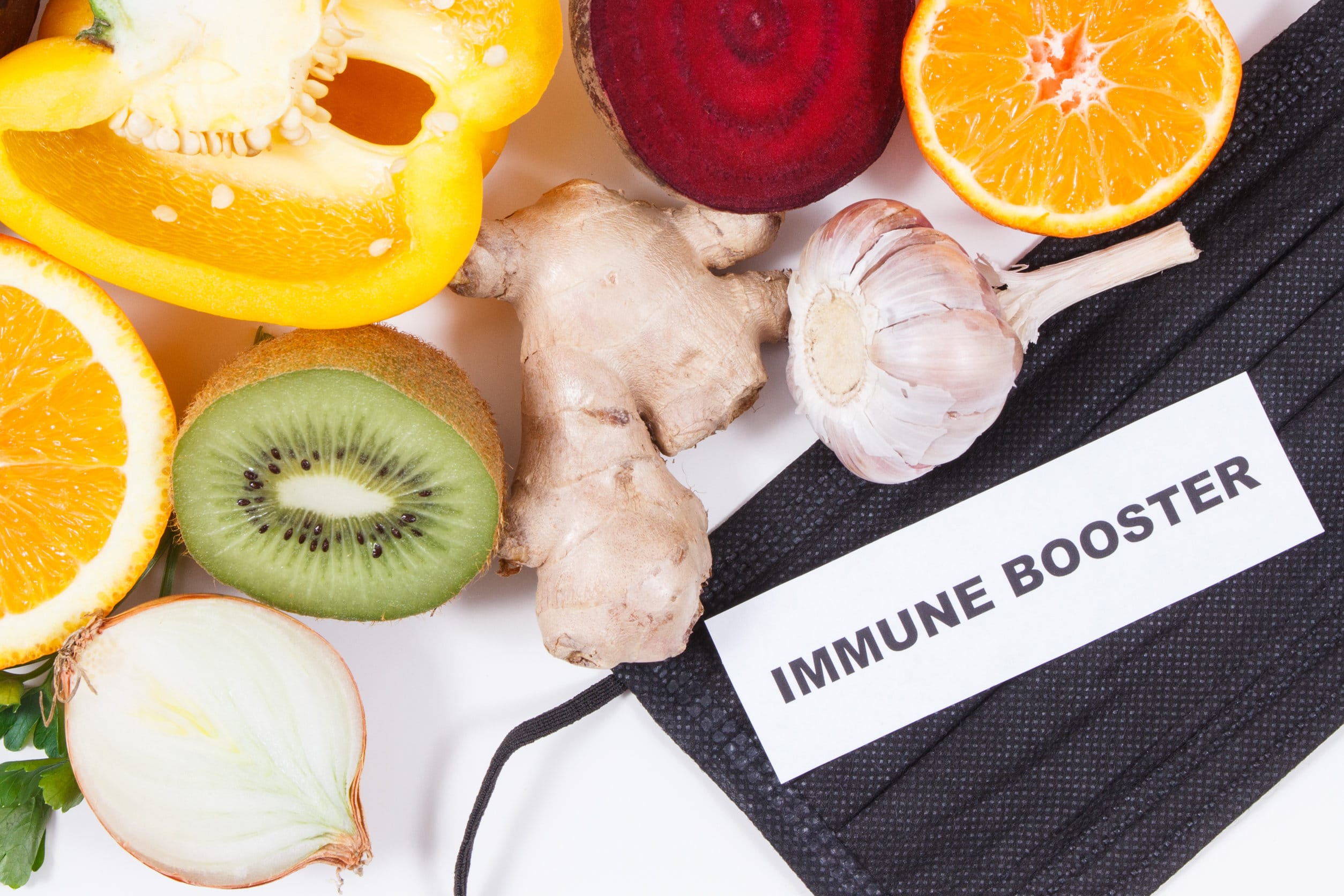As the world starts to recover from the pandemic, this is a good time to start thinking about how you can support your own immune system.
There are several key deficiencies that people commonly suffer from and although they’re more common during the winter months, as normal life resumes it is important to support our immune system during the transition.
Vitamin D
If you live in a northern climate with a true autumn and winter season, then you know there are months where the sun is practically scarce for months. So it is critical to obtain the right amount of vitamin D in order to keep your immune system firing on all cylinders. Vitamin D deficiency is associated with decreased innate immunity and increased risk for infections.
To keep your vitamin D levels from plummeting over the winter months, increase your intake with these five vitamin D containing foods:
- Cod Liver Oil – 1,400 IU per tbsp
- Cold-Water Fatty Fish – trout (645 IU per 3 ounce), salmon, or mackerel
- Medicinal Mushrooms – Portobello (375 IU per mushroom) or maitake
- Pork – 78 IU per 3 oz. serving
- Eggs – 44IU per egg
It is recommended that you maintain your vitamin D levels between 100 – 150 (nmol/l), so if you struggle with colds and flu, or low mood over the winter, then getting your levels tested would be beneficial.5
Vitamin A
Did you know that if you are low in Vitamin A, it will significantly impair your mucosal immunity and leave you more prone to upper respiratory tract infections (URTI).6 If you work in an office, have kids in daycare or school, or train intensely than you’ll be a much greater risk of URTI.
Traditional diets around the world are loaded with nutrient dense meats that are the richest source of preformed vitamin A. You can also get significant beta-caretene (which converts to vitamin A) from fruits and veggies.
Try these five foods rich vitamin A foods to keep your immune system robust:
- Turkey and Beef Liver – 17,000 IU and 6,400 IU per 2.6 oz., respectively.
- Cod Liver Oil – 4,150 IU per tbsp.
- Sweet potatoes – 1,100 IU per medium size
- Pumpkin ‑1,000 IU per ½ cup
- Carrots – 700 IU per ½ cup
Vitamin C & Zinc
Vitamin C and zinc is a powerful combo for ramping up your immune army and fighting off bacteria and viruses. Vitamin C improves the response of neutrophils and lymphocytes, important immune cells that are the ‘front-line soldiers’ of your innate immune system.7,8 Zinc is essential for optimal function of your thymus gland, responsible for developing the ‘special forces’ immune cells of your adaptive immune system.9 This is the seek and destroy arm of your immunity, crucial for knocking out foreign invaders once they’ve breached your first-line of defense.
A nutrition strategy rich in animal protein is the best dietary source of zinc, while a mix of fruit and veggies are key for boosting your vitamin C intake (some sources may surprise you!). To ensure you’re meeting your body’s increased demands over the next few weeks, be sure to include the following foods:
Vitamin C
- Yellow Bell Peppers – 345mg per large pepper
- Broccoli – 92mg per cup (chopped)
- Kale – 80mg per cup (chopped)
- Orange – 70mg per fruit (medium)
- Kiwis – 64mg per fruit
Zinc
- Oysters – 33mg per 6 oysters
- Beef – 14mg per fillet (4.5oz.)
- Lamb – 7mg per 3oz.
- Pork – 4.3mg per 3oz.
- Ginger
Give us a Call at Peak Wellness! Whether you want to schedule an appointment or learn more about all of our other services we would be happy to assist!








